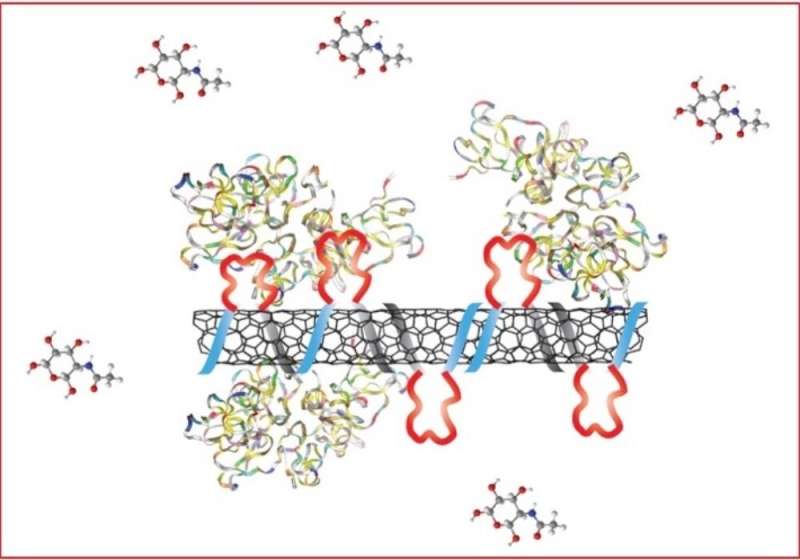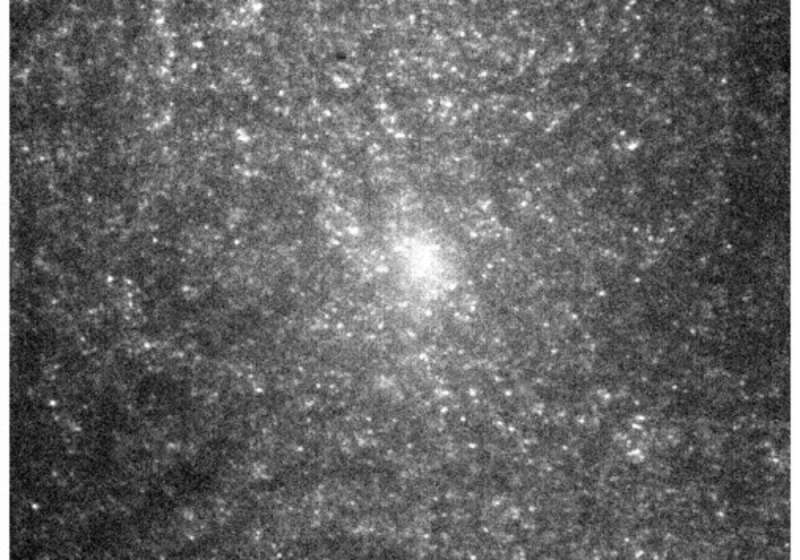Unique synthetic antibodies show promise for improved disease and toxin detection

Scientists have invented a new "synthetic antibody" that could make screening for diseases easier and less expensive than current go-to methods. Writing in the journal Nano Letters, a team led by Markita Landry of Berkeley Lab and UC Berkeley describes how peptoids – synthetically produced molecules, first created by Ron Zuckermann at Berkeley Lab's Molecular Foundry, that are similar to protein-building peptides – and tiny cylinders of carbon atoms known as single-walled carbon nanotubes (SWNTs) can be combined to selectively bind a target protein.
The resulting nanoparticle assembly fluoresces under near-infrared fluorescence microscopy, thus allowing for target protein quantification just like a biologically derived antibody.
The researchers demonstrated that their peptoid-SWNT assemblies remain stably bound to their target when tested in samples with a wide range of pH, salt concentrations, and temperatures; and when exposed to various protein-digesting enzymes – conditions no conventional antibodies could be expected to function in.
"This new platform encourages us to look to synthetic chemistry and nanomaterials science to create molecules that bind biological markers for diseases like cancer or viral infections," said Landry. "The stability of purely synthetic recognition elements could facilitate easier disease diagnosis. They could also have safety applications by detecting hazardous chemicals in water or food."

More information: Linda Chio et al. Electrostatic Assemblies of Single-Walled Carbon Nanotubes and Sequence-Tunable Peptoid Polymers Detect a Lectin Protein and Its Target Sugars, Nano Letters (2019). DOI: 10.1021/acs.nanolett.8b04955
Journal information: Nano Letters
Provided by Lawrence Berkeley National Laboratory





















